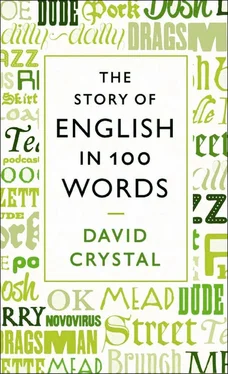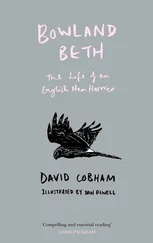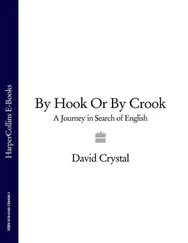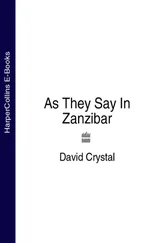But beware: don’t mix up the ‘drink’ sense of the word mead with another sense which is recorded in English from a few centuries later — a shortened form of meadow . When you see such words as mead-flower , meadsweet and meadwort , these are all meadow flowers. They have nothing to do with the drink. And if you know a road called the Meadway , that’s the ‘meadow’ sense too, and a later development. It’s mead in the ‘drink’ sense that fascinates linguists, because it’s part of a window into the origins of English.
 8. Merry — a dialect survivor (9th century)
8. Merry — a dialect survivor (9th century)
The first time we see the word merry is in an Old English manuscript, made by or for King Alfred, at the end of the ninth century. Except we don’t actually see merry , spelled like that. What we see is myrige , which would have been pronounced something like ‘mi-ree-yuh’.
There were many words in Old English written with that letter y . It seems to have represented a vowel sound pronounced high up in the front of the mouth, a bit like the i of sit , but with rounded lips. We can hear the same sound today in the way many Scots people pronounce you , or the way the French say tu . By the Middle Ages, people must have stopped rounding their lips, because the scribes started writing the word with an i . Middle English manuscripts show such spellings as miri and mirye .
In Anglo-Saxon manuscripts we also see the word spelled as muri and meri . That suggests there were different dialect pronunciations in the country. And when we look at where the people who wrote the manuscripts were located, we can indeed begin to see a dialect pattern. The scribes who used the i spelling were based in the south, around Winchester. Those who used u came from further west. And those who used e came from the south-east, in Kent.
By the Middle Ages, there was a huge tangle of spellings. Over fifty ways of spelling merry have been recorded. Versions with e , u and i turn up all over the place. And then, gradually, the spelling with e won, reflecting the pronunciation which had become the norm in London and the south-east.
What could be merry , in Old English? The word originally meant ‘something that causes pleasure’, so it was used for all kinds of things and happenings. Songs, birds, harps, organs and voices could all be merry. So could the weather, the countryside, days, winds and smells. Books and stories were merry. So were clothes and jewellery. And the sun and stars. And countries. Merry England dates from around 1400.
Only in the 14th century did the word come to be applied to people, and then it developed a remarkable range of uses. Merry England indeed! We see it used for any kind of animated enjoyment — and also when the animation is drink-fuelled. Anyone happily tipsy is said to be merry. That usage goes back to the Middle Ages, when people were also said to be merry-drunk . In the 16th century, strong ale was called merry-go-down .
One sign of a word becoming really established is when it turns up in idioms, book titles, nicknames and compound words, and from the 14th century we see it in a whole host of phrases. Idioms? Make merry and the more the merrier . Titles? The Merry Wives of Windsor and The Merry Widow . Nicknames? The Merry Monarch (Charles II) and the Merry Men (of Robin Hood). Compounds? The supremely descriptive and merrythought . A merry-totter was a medieval name for a children’s swing or see-saw. It’s still heard today in some regional dialects, especially in Yorkshire. And in the 16th century, a merrythought was a word for a fowl’s wishbone, pulled and broken while each party made a wish.
The process continued in later centuries. In the 18th century we find the arrival of the fairground carousel — a merry-go-round . In the 19th century we find people being merry and bright and going on their merry way . Merry-go-up was a slang name for snuff. The Royal Navy came to be called the Merry Andrew . In the 20th century, we find merry maids used as the name of a wide range of enterprises, from milk chocolate caramels to domestic cleaning services. And in the USA and the Caribbean, merry became popular as a verb. One could merry oneself (‘amuse oneself’). And people could merry up , such as after a drink, or merry up a room if it looked dull.
The ultimate accolade was when merry came to be used, in the 16th century, as a greeting for one of the chief festivities of the year. Merry Christmas! And, for a while, Merry New Year too, until Happy took over. Not a bad career for what was originally a Kentish dialect word.
 9. Riddle — playing with language (10th century)
9. Riddle — playing with language (10th century)
People have probably played with words as long as language has existed. They love to take a word and mess about with it, such as by saying it backwards, making an outrageous pun on it or stringing it together with other words so that it can’t be said (tongue-twisters). The playful temperament has produced innumerable word games and competitions, such as crossword puzzles and Scrabble. And one of the earliest signs of this temperament in English appears in the form of riddles.
It took a while for the word riddle to develop this meaning. When it first appears in Old English, in early translations from Latin, it was in the form rædels (pronounced ‘reah-dels’), a combination of the word for ‘read’ with an -els ending. It meant a ‘reading’ or ‘opinion’ about something. Gradually the sense broadened to an ‘interpretation’ of something, and then, in an interesting switch, to a ‘saying that defies easy interpretation’ — an enigma. The modern meaning was in place by the 10th century.
The form of the word changed too. That -els ending was quite common in Old English, turning up in such words as gyrdels (‘girdle’) and byrels (‘tomb’ — think buriels ). But during the 14th century it evidently confused everyone. By then, the -s ending on a noun was being thought of as a plural. So when people saw the word redels (as it was usually spelled in the Middle Ages), they thought it of it as a plural form, riddles . During the 15th century, they gradually dropped the -s to make a new singular form, riddle .
There’s a collection of Old English riddles in one of the finest Anglo-Saxon manuscripts: the Exeter Book. It was compiled in the late 10th century, and is so called because it was acquired by Bishop Leofric for Exeter Cathedral some time afterwards. It contains over thirty poems and over ninety verse riddles. They cover a wide range of subjects reflecting the Anglo-Saxon way of life, such as weapons, book-making, animals and everyday objects.
Each riddle presents a topic in a mysterious or puzzling way and asks the reader to identify it. Some are the equivalent of the modern ‘dirty joke’. The riddle whose answer is ‘a key’ begins like this: ‘Something wondrous hangs by a man’s thigh…’ Here’s R. K. Gordon’s translation of one of the cleaner riddles:
I saw a creature in the cities of men who feeds the cattle. It has many teeth. Its beak is useful. It goes pointing downward. It plunders gently and returns home. It searches through the slopes, seeks herbs. Always it finds those which are not firm. It leaves the fair ones fixed by their roots, quietly standing in their station, gleaming brightly, blowing and growing.
Читать дальше

 8. Merry — a dialect survivor (9th century)
8. Merry — a dialect survivor (9th century) 9. Riddle — playing with language (10th century)
9. Riddle — playing with language (10th century)










